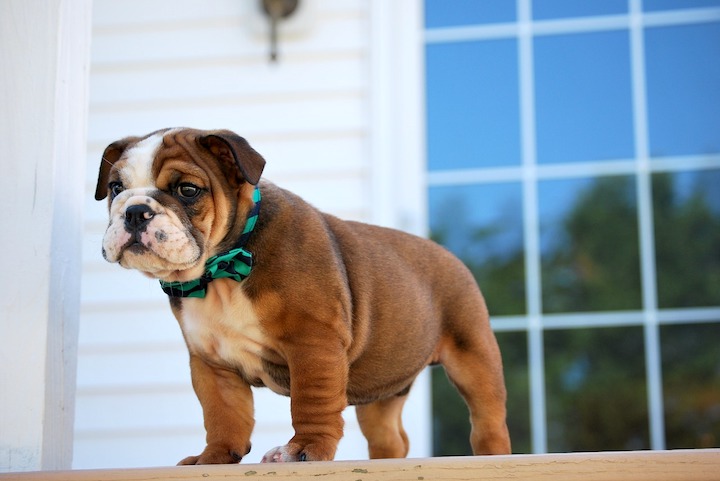Bladder infections
Bladder infections are caused by bacteria traveling into your dog’s bladder due to problems with urine flow, a weakened immune system or other causes. Signs of a bladder infection include frequent urination or having accidents in the house, painful urination and blood in the urine.
Kidney infections
Kidney infections are usually caused by bacteria getting past the bladder and traveling all the way to the kidneys. Signs of a kidney infection include vomiting, excessive thirst and urination, not eating, abdominal pain, and a fever.
How Often Should a Puppy Pee? What’s Normal?
Adult dogs can hold their bladder for impressive lengths of time. Many only require three trips outside per day, meaning that they are waiting at least 8 hours between pit stops.
But young puppies, whose bladders are much smaller and bladder control much poorer, must be allowed to tinkle far more often than this.
Even if it seems like your dog is peeing in the house right after being outside, it could have already felt like an eternity for your little fella!

For example, an adult dog may drain his water dish and then go fall asleep on the couch all night before needing to pee in the morning. He may really need to go by the time he licks you into a conscious state around 6 AM, but he’ll hold it all night without problem.
Conversely, puppies will usually need to void their bladder within 10 to 30 minutes of filling up their tanks.
In general, young puppies (less than about 6 months old) should be taken out once every hour or two. The AKC suggests that puppies can wait for the same number of hours as their age in months up to about 9 months of age.
This means that a 1-month-old puppy will need to pee every hour, while a 5-month-old puppy will need to relieve himself every 5 hours.
So, if your 5-month-old puppy needs a break every hour or two, something is probably wrong, and you should consult your veterinarian to get your puppy the help he needs.
Your vet can help you treat medical problems, but if your pup is healthy, the root of the problem is probably behavioral in nature. You’ll have to correct these problems (potentially with the help of a trainer or behaviorist).
Puppy Pees All The Time: 5 minutes, 10 minutes, constantly
It sometimes feels that as a new puppy owner, a disproportionate amount of time is spent thinking about their toilet habits. One concern that frequently comes up is that puppies seem to pee a lot… So what’s normal… and healthy?
Puppies naturally have very small bladders, and the younger they are the more frequently they need to pass urine. A useful rule of thumb is that a puppy should be able to hold their bladder for the same number of hours as their age in months. So a one month old puppy can hold urine for around an hour. But a 6 month old puppy can usually go for around 6 hours if needed. The length of time will also be affected by the size of the dog, so smaller toy breeds will be less likely to hold their bladder for as long as large breed puppies at the same age.